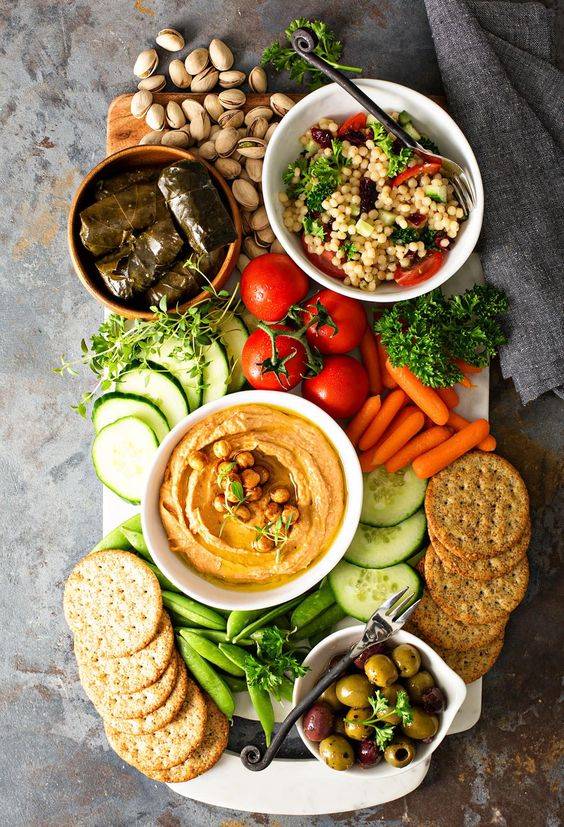Our blood has a Ph of about 7.4, it is slightly alkaline. So it is important for us to maintain this balance, and to do that we must know what we are eating because foods can damage it.
This is the second part of an article about a world-famous thousand-year-old diet and discipline called Macrobiotic. Here you find the previous article.
Let’s go a little deeper now.
Does the diet work? Yes, it does. Does the diet work? No.
The answer is it depends.
The diet, yes, of course it works. Unfortunately, I have known people who have abused strict diets (MA-PI 1 and 2) and have lost a lot of weight and become stubborn.
Because, you know, what we eat instantly influences our thoughts and actions.
When it is said ‘We are what we eat’, it is not a phrase to be taken lightly.
I will now explain although it would take more than one article to grasp this concept fully.
We are in the realm of the 5 transformations, which is an age-old theory from ancient China and reorganised by Muramoto in a book that is currently only available in Italy.
What does Theory 5 (we will call it The Theory of Five Transformations, well known as Five Elements Theory) tell us?
It tells us many things, here we need only give a few examples from the world of food.
Each organ is connected to a flavour, and from this flavour, it receives energy or is discharged by it depending on whether the excess is Yin or Yang.
Yin is an acid excess.
Yang is an alkaline excess.
Yin and Yang are two forces that coexist and hold together all matter in this Universe, and they have very precise dynamics.
Here we only need to know that food is divided into acid and alkaline.
Our blood has a Ph of about 7.4, it is slightly alkaline. So we need to maintain this balance; to do that, we must know what we are eating because food can damage it.
So. Organs.
The kidneys are associated with the salty taste, which is a Yang element, i.e. alkaline.
The liver is associated with the sour taste, which is a Yin element, i.e. acid.
The heart is associated with the bitter taste, which is a bitter element, i.e. Yang.
To the spleen-pancreas and stomach is associated the sweet taste, which is a Yin element.
The lungs are associated with the spicy taste, which is a Yin element.
However, each flavour also has an opposite effect depending on the excess.
Salt strengthens the kidneys, but an excess of salt drains them, creating problems. And the same goes for the other flavours associated with the respective organs.
I know, it’s a bit difficult. Here, however, it is enough to make a personal diagnosis to understand which flavour we are making an excess of at the moment. Which organ, according to you and your personal situation, is suffering the most?
Liquids such as beer, wine and fizzy drinks, are very Yin, so they acidify, forcing our body to secrete alkaline substances, and to do this they will take something away from us. Every excess, remember, takes something away from us, and sooner or later we will have food deficiencies and damage. Damage generates disease and/or deficiencies.
A balanced meal, which respects all flavours and does not over-stimulate the organs, consists of the following proportions:
– 40-50% whole grains (or alternating)
– 40-50% raw and cooked vegetables (the balance depends on the season)
– 10-20% protein (protein should not be mixed as it creates acidity).
In summer, for macrobiotic discipline, one should increase the ratio of vegetables, much more raw than cooked. Of course, macrobiotic also consider where you dwell. Exactly.
And here we return to the ‘macrobiotic depends’.
The diet depends on many factors, and it changes from zone to zone, health status to health status. Even the type of work you do requires a specific diet. If you work in an office for 8 or 10 hours, a vegetarian diet will benefit you.
If your job is to build houses or work with heavy materials, a more open diet is advisable, although nowadays vegan/vegetarian diets are also able to support an intensive lifestyle.
Sick people, of course, should avoid overly processed products, including meat and fish. In macrobiotic, it is recommended to eat brown rice cooked for two hours in a pressure cooker and then ground to a cream. The combination of rice and gomasio (salt and sesame seeds), has proven to be excellent in cases of poor health.
Personally, in 2015, I underwent a ten-day diet with rice and gomasio alone. My skin was smooth after just two days and I felt that my whole body benefited. It was a crazy experience.
Eating only rice and gomasio is not easy, it takes absurd determination. It is a great purge, though, and I can assure you that every cell in my body benefited.
Macrobiotics is a diet that ‘depends’.
Those who live in northern countries will have to adapt their diet to their surroundings.
I always say. If you are a fruitarian, for example, or a crudist and a fruitarian, living in London or Dublin will not help you, you will certainly have problems. The choice of diet must be accurate to where you are, otherwise, it doesn’t work; sometimes it works in the short term, but it won’t work in the long term. So, a strict crudist and fruitarian diet would be more conceivable in warm places, like South America, or Africa, where nature has provided a wide range of fruit and vegetable varieties, which is not the case if you live in the UK or Scandinavian countries, for example.
In Italy, for example, where the climate is mild and we are in a middle band between north and south, it is possible to conduct a macrobiotic diet of a vegan kind without any problems, as the variety of fruit, vegetables, pulses and cereals is wider. Imported products from faraway places are bad for the environment, only local products should be consumed.
I have been a vegan for 14 years (two years as a vegetarian); I have always admitted that human beings are not designed to follow a one-sided diet, but based on their environment, circumstances, climate, job, physical structure, etc. As you can see, there are many factors to take into consideration.
However, to conclude, nowadays we certainly need to change course, move away from industrial meat products (including fish and animal derivatives) and adopt a diet based on vegetables and grains, incorporating the macrobiotic principles just outlined into the understanding of this change.
In a future article, we will discuss other aspects of the macrobiotic diet and its connection to Taoism (Yin and Yang) and the impact of ancient seeds (rice, wheat and beans for example) on our health.
If you have any questions, please feel free to comment or write to me.


